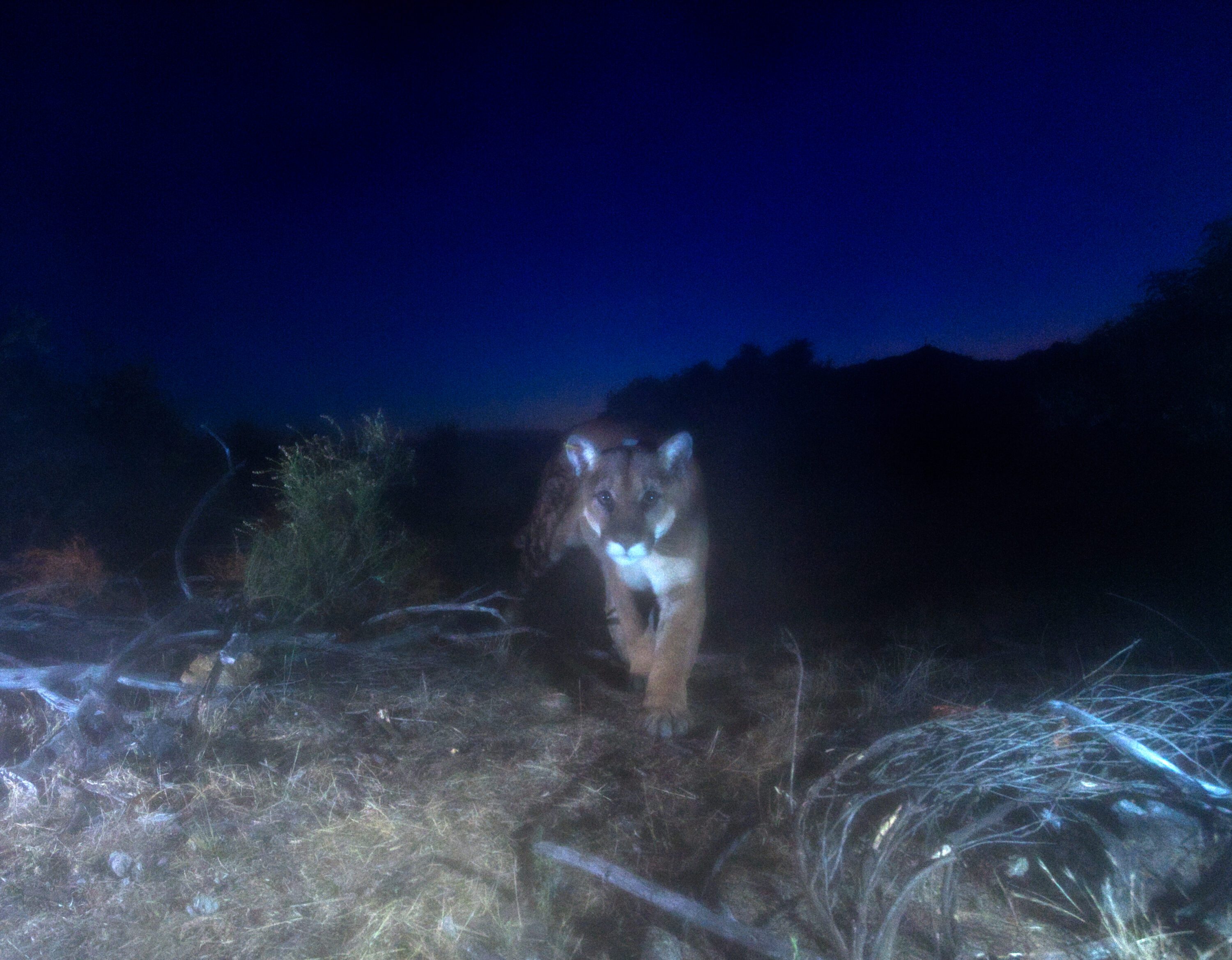After a series of close encounters with residents and apparent attacks on two dogs by the Southland’s most famous mountain lion, P-22, wildlife officials Thursday announced plans to capture and evaluate the health of the animal.
The lion, one of many Southland-area cats being tracked by National Park Service researchers, has gained fame locally for his persistence and durability, successfully managing to cross both the San Diego (405) and Hollywood (101) freeways to reach his current roaming grounds in the Griffith Park area.
But the cat has made headlines in recent weeks, most notably being blamed for killing a leashed dog last month in the Hollywood Hills and allegedly attacking another in Silver Lake on Sunday.
The California Department of Fish and Wildlife and the National Park Service announced Thursday they plan to capture P-22 to evaluate his health and “determine the best next steps for the animal while also prioritizing the safety of surrounding communities.” What such steps might entail were not disclosed.
The agencies stated that the cat “may be exhibiting signs of distress.”
“This is an unprecedented situation in which a mountain lion has continued to survive in such an urban setting,” according to the DFW statement. “As P-22 has aged, however, the challenges associated with living on an island of habitat seem to be increasing and scientists are noting a recent change in his behavior. This underscores the consequences of a lack of habitat connectivity for mountain lions and all wildlife.”
The agencies stressed that they “do not require assistance” in capturing the animal, and asked the public to refrain from any efforts to do so.
Known as the “Hollywood Cat,” P-22 has been the face of the NPS’ lion-tracking effort. His exploits have been documented in various media accounts, particularly for some of his more notable exploits — crossing a pair of freeways, hiding out under a Los Feliz home in a standoff that drew widespread media attention and even being named a suspect in the killing of a koala at the Los Angeles Zoo.
He is believed to be about 11 years old, making him the oldest cat in the NPS’ study of Southland lions. He was initially captured and outfitted with a tracking collar in 2012. At the time of his last capture, he weighed 123 pounds.
Beth Pratt, California regional executive director of the National Wildlife Federation, said she has faith the state and federal wildlife authorities will make the right decision about the lion following a health evaluation.
“P-22 has given us so much,” Pratt said in a statement. “He is a beloved wild mountain lion that survived against all odds, and his plight of being trapped in Griffith Park after making a perilous journey across two of the busiest freeways in the country showed the world how harmful our roadways can be to mountain lions and all wildlife. He captured the imagination of people around the globe, and his story inspired the building of the world’s largest urban wildlife crossing outside of Los Angeles so that other area mountain lions don’t suffer his same fate.
“We must now give back to P-22. We must recognize when the limits of this unconnected space have been reached, and take action to ensure the well- being of P-22 and the community he lives in.”







